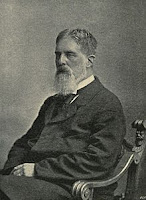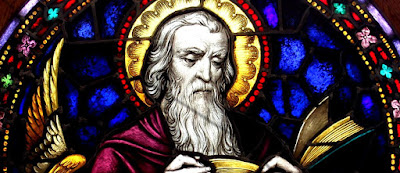She married another Unitarian minister, William Gaskell, in 1832. She helped him in his work, teaching reading and writing as well as Scripture to Sunday School students at his church in Manchester. She also published a few short stories during the early years of her marriage. The Gaskells had four daughters. and it was following the death of an infant son in 1845 that William suggested that Elizabeth write a novel to distract from her grief. That novel, Mary Barton, was published anonymously in 1848.
Gaskell came to be primarily known for her novels, which often dealt with issues of social concern. Charles Dickens took an interest in her work, and published some of her later writing in his magazine Household Words. While supportive of her career, he was often frustrated by her refusal to agree to his editorial suggestions. Gaskell's reputation has survived to our own day, and you can probably find her books at your local bookstore. Some have also been adapted for film and television.
There are a number of ministers' wives who wrote hymns, such as Cecil Frances Alexander, Julia Anne Elliott, and Jane Lundie Bonar, so it is not surprising that Gaskell also tried her hand at it. This wedding hymn was published in a number of nineteenth-century hymnals but is hardly known today. One unusual thing about it is that it makes no reference to gender, as most wedding hymns written before the last ten years or so usually do.
We join to pray, with wishes kind,
A blessing, God, from thee,
On those who now the bands have twined
Which ne'er may broken be.
We know that scenes not always bright
Must unto them be given;
But over all give thou the light
Of love, and truth, and heav'n.
Still hand in hand, their journey through,
Joint pilgrims may they go;
Mingling their joys as helpers true,
And sharing every woe.
May each in each still feed the flame
Of pure and holy love;
In faith and trust and heart the same,
The same their home above.
Elizabeth Gaskell, 19th cent.
Tune: HOWARD (C.M.)
Elizabeth Cuthbert, 1814
P.S. - In previous years, we have observed the Feast of Saint Michael and All Angels on this date.
Eight Years Ago: Around the throne of God a band
Seven Years Ago: Stars of the morning, so gloriously bright
Six Years Ago: They are evermore around us
Four Years Ago: O Captain of God's host
Two Years Ago: High on a hill of dazzling light
One Year Ago: Praise to God who reigns above








